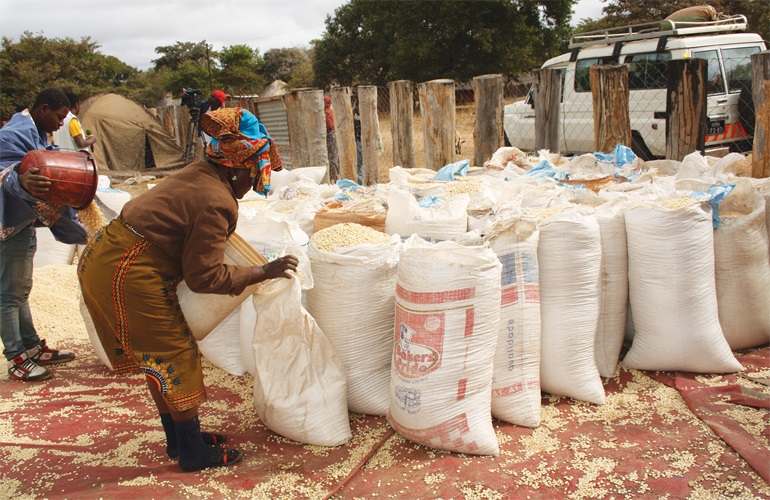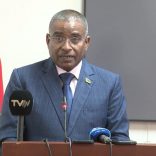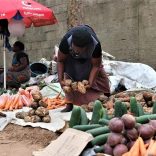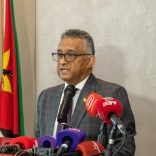Mozambique: World Bank disburses US$201 million to finance health system preparedness - Watch
Mozambique: Soil erosion damages roads in Morrumbala – Noticias

FILE PHOTO - Morrumbala is a district with enormous potential in agriculture [File photo: Noticias]
The weight of vehicles and soil erosion are taking a heavy toll on roads in Morrumbala district, Zambézia, where rehabilitation works cost 20 million meticais annually.
Morrumbala is a district with enormous potential in agriculture, the marketing of which demands roads for both the transportation of people and of agricultural surpluses from the main production centres to consumer markets.
At the peak of the harvest, over 100 heavy goods vehicles per day leave Morrumbala, carrying cereals and other crops. The roads are also used to transport civil engineering materials and logs, among other goods.
Despite the maintenance, the roads deteriorate quickly because of the excess weight of the vehicles travelling on them and the degradation to which they are subjected, particularly in the rainy season.
The district director for Infrastructure and Planning in Morrumbala, Rui Semo, says that, alongside the combined effects of weight and soil erosion, not enough attention is paid to the inspection of road maintenance works.
Companies are hired to carry out the inspection, but, he says, they are made only annually and always in the same places. Semo also says that the district’s roads need periodic maintenance, and not just the routine maintenance as has been happening for the past ten years.
The district director says it is necessary to raise the roads’ overall platform level, reinforcing the amount of soil and applying better techniques to stop erosion in critical locations. At the moment, he says, of the district’s 695-kilometre road network, only 500 are passable, and that only because of emergency work.
However, of the 500 kilometres which are passable, there are critical points in the sections that connect the headquarter village of Morrumbala to the administrative posts of Chire, Megaza and Pinda – all potentially rich in agriculture, livestock, fishing and tourism potential.
The World Bank is prepared to finance the rehabilitation of 134 kilometres of embanked roads in Morrumbala district – in particular the Morrumbala-Megaza and Morrumbala-Zero routes.
The works, budgeted at 570 million meticais, will elevate the road platforms and increase the width to 2.5 metres, construct 12-metre bridges and improve sections particularly vulnerable to wet weather.
Rui Semo says that work could begin at the end of the rainy season, extolling the gains inherent in the World Bank-funded rural roads programme, under which the contractor has one-and-a-half years to build the road, and maintains it for a further two-and-a-half years.
With the desired level of intervention, Morrumbala will have passable roads for more than 15 years, connecting and integrating rural markets.
In another development, the district government of Morrumbala is seeking 35 million meticais to rehabilitate and expand the water supply system of the district headquarters village.
An economic feasibility study and the respective executive project have already been completed, and the intervention, which will serve 6,000 people, was approved last year.
The current system was built in the colonial period and had only 50 connections at the time, but now serves 150, with serious limitations. There are neighbourhoods in Morrumbala that do not have access to mains water, mainly in the commercial area, where people resort to traditional wells to supply their daily needs.













Leave a Reply
Be the First to Comment!
You must be logged in to post a comment.
You must be logged in to post a comment.